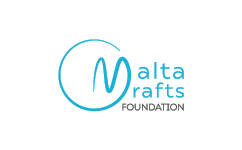The Malta Crafts Foundation has signed an MOU with the ETAR Regional Ethnographic Open-Air Museum in Bulgaria with the aim of collaborating towards presenting in greater detail the wealth of the intangible cultural heritage in the respective countries, thereby contributing to the preservation, development, and promotion of Maltese and Bulgarian traditional crafts.
Signed by the entities’ CEOs – Elton Micallef and Prof. Svetla Dimitrova – within the context of the International Fair of Traditional Crafts held in Gabrovo, Bulgaria between September 1st and 3rd, among other initiatives the MOU seeks to encourage the implementation of joint projects and programmes, the exchange of artisans and researchers in the field of traditional crafts, and the sharing of information about significant events and achievements.
The Malta Crafts Foundation also assisted two local artisans, weaver Alda Bugeja and silversmith Anthony Bonnici, to take part in the Fair. The two are the first to represent Malta at this international event after being invited by the organisers – the Ministry of Culture in Bulgaria, the Municipality of Gabrovo, and the ETAR Regional Ethnographic Open-Air Museum – who in this European Year of Cultural Heritage wanted to focus even more on traditional techniques and crafts.
Anthony also took part in the Craftsman’s Competition in Silversmith’s Trade, winning the International Special Prize of the Municipality of Gabrovo. The competition saw masterpieces being created during the duration of the Fair by artisans from a variety of countries, along with another piece with which they submitted their application and on the basis of which they were invited to take part in the competition.
Along with his filigree pieces, a wall-hanger created by weaver Alda Bugeja during the Fair was also requested by the ETAR Museum to become part of their collection of artisanal exhibits.
The Malta Crafts Foundation was also invited to attend the International Scientific Forum “The Traditional Crafts: Contemporary Reflections”, where discussion between academics and practitioners focused on how the past, when artisans used to be the innovators setting the standards that we now find in various industries, can be used as a springboard to enable the sustainable future of the crafts sector.

